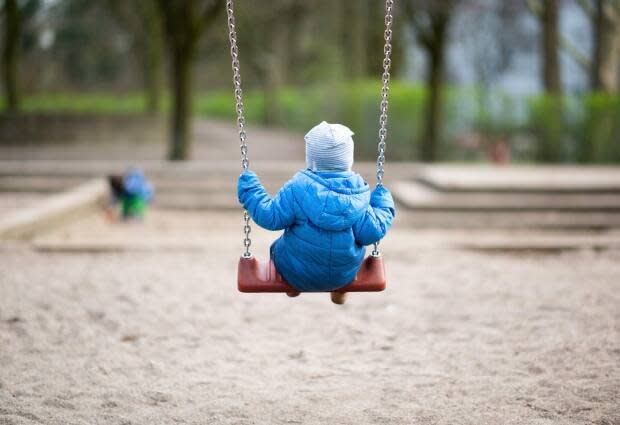Expert Ann Douglas answers your questions about parenting in a pandemic
Isolated kids. Sad kids. Kids too young to fully understand that we're all dealing with a pandemic.
Parenting expert Ann Douglas fielded a wide variety of questions from frustrated parents this week in the latest instalment in CBC Edmonton's Ask the Expert series on topics related to COVID-19.
Douglas is a bestselling parenting author and a regular parenting columnist for CBC Radio. She's the creator of The Mother of All book series and the author, most recently, of Happy Parents, Happy Kids and Parenting Through the Storm.
"I wouldn't want any parent on the planet to think that the expectation right now is parental perfection," Douglas told Nancy Carlson, host of CBC Edmonton's News at 6.
"That's never a realistic expectation, and right now I think we have to be extra kind to ourselves, because this is really hard."
Here are some of the questions and answers, edited for length and clarity.
Q: My child does nothing except listen to audio books and play video games … he hasn't interacted with another kid, in person, in two months. Do I let him wallow in the electronics, or battle with him to force him to diversify his activities?
Maybe there's some sensible middle ground in there. It's not easy to find that middle ground in such an extreme situation but maybe there's a way that you could have a virtual visit with a friend, so that there's a little bit of social contact happening, or even, you know, a visit across the back fence, waving at another family.
In terms of screen time and audio time and all that kind of thing, in normal times we'd be worrying a lot more about that, but these are not anything but normal times.
Everybody feels like they're treading water and they're just trying not to sink. And if a little more screen time than usual helps us to stay afloat, I don't think it's such a bad thing.
Q: My daughter is struggling with sadness. How can you lift your kid's spirits when yours are dampened as well?
I think that's one of the biggest challenges of the pandemic right now. Whether it's sadness or anxiety, we, the grown-ups, are feeling all the feelings … We don't want to have an environment in our house where everybody is immersed in sadness and anxiety all the time.
To calm your child, and for your child to feel a little happier, you have to nudge your emotions in that direction. And trust me, this is not easy. Every single caring human I know on the planet right is really, really struggling. So sometimes it's just little things, like noticing what are the situations where you feel a little happier, or on a bad day, just a little less awful, and what could you do to try to replicate those conditions a little more often.
I notice that if I lose myself in a good book, or I'm able to go for a walk in nature, or even to be able to sit and have a heart-to-heart conversation, either with my partner or over the phone with a friend, I feel that much calmer.
So that would be my advice to this mom: Do what you can to refill your bucket in whatever way is possible, knowing that being a little happier as a person will make you a little happier as a parent, will spill down and trickle down to ending up with a slightly happier kid.
Q: How do you explain the virus to kids ages 2 and 4?
It is really hard to explain an abstract concept like a virus to a very young child, but most kids understand the concept of clean or dirty, or even germs. Maybe not the two-year-old as much, but they are used to washing their hands and basic hygiene activities.
So I think tying it back to that, and also, instead of making it super scary, where you're talking about 'We don't want to catch this virus,' and it sounds almost like the plot for a horror movie, [say] 'I think we have the opportunity to keep ourselves and other people safe by doing the hand-washing, the physical distancing,' and so on.
That way they'll feel more empowered and they'll understand sort of what the goal is of all this extra hand-washing. I'm sure everybody's family, the use of soap has ramped up enormously in the past few months.

Q: How do you get your kids motivated to do their school work at home when they don't respond to you the same way they would their teacher?
It's not going to be as structured as in the classroom, and all you can do is put the learning supports in place. It's kind of like when you're trying to encourage a child to try a vegetable. You can put the vegetable on the table but they have to be willing to try it.
It's the same with the school stuff. You can make sure they have access to the internet, if they need that for their assignments. You can find a little corner on the kitchen table where they can sit down and do their work.
But you can't force another human being's eyeballs to move across the screen and learn how to do math. Some of this is going to be in their court. I think the way to get through this time is just to gently encourage — to look for things that they're naturally interested in, to get the teacher involved in helping to engage your child if they're sort of getting off track.
Because it is hard to stay motivated with online learning. Like, how many adults right now have had it with Zoom calls? I think kids are reaching a stage of screen fatigue.


